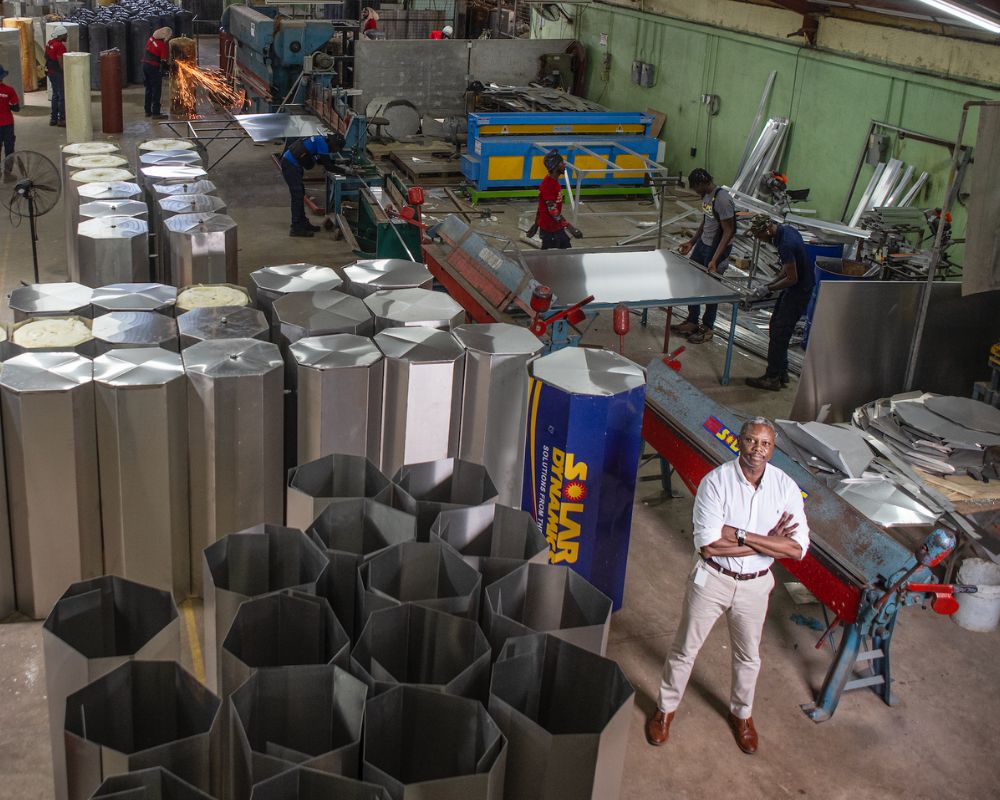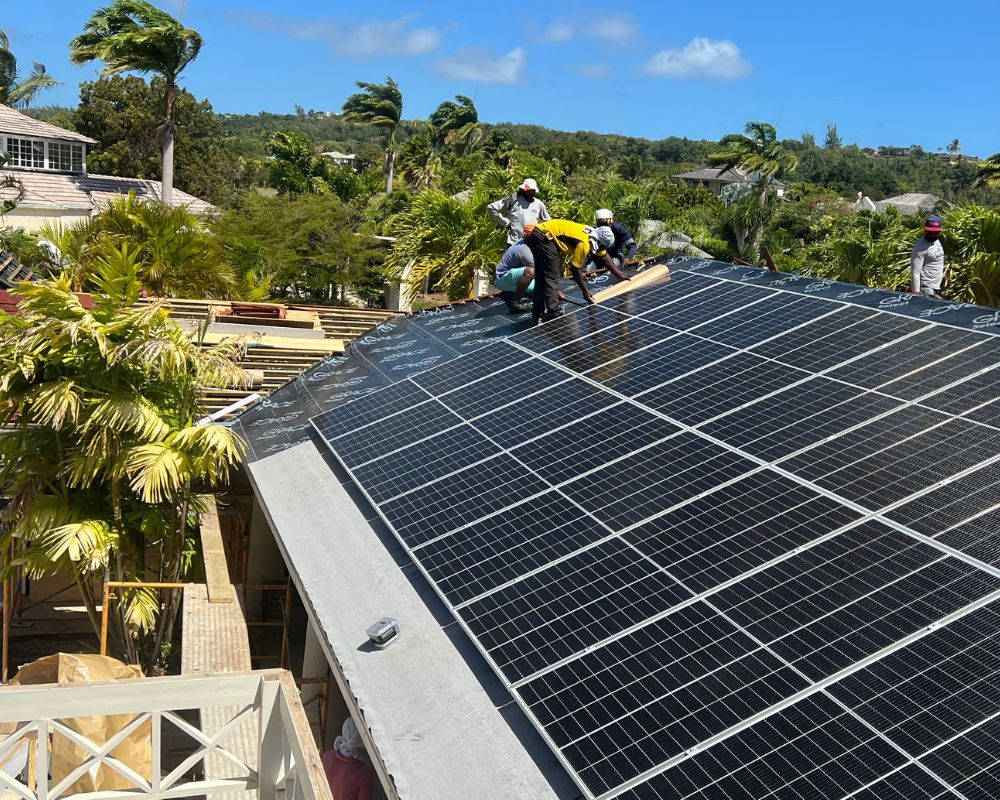
Barbados, well known for its pristine beaches and vibrant culture, is setting sail on a new course towards a sustainable and resilient future. At the heart of this journey is the transformation of its power sector, supporting the transition to a carbon neutral economy, all while setting up a blueprint for other nations looking to balance their energy needs with social and environmental stewardship.
Looking back to the mid-1600s, agriculture was the main driver of the economy, and wind power was being used to grind sugar cane. This technology remained in operation for the following 250 years, until the first steps were taken towards the electrification of the country. Barbados has proven to be a longstanding regional pioneer in the energy sector, by becoming an early global adopter of power sector legislation, drafting its first regulation in 1899. Barbados became one of the first English-speaking islands in the Caribbean to introduce electrification, by establishing centralized energy production right in the heart of Bridgetown in the early 1910s.
These events laid the foundation for the incorporation of electricity into a range of critical services, including water distribution, airport operations, and radio services all by 1940. In the early 1970s, the nation solidified its status as an energy pioneer by taking the lead in advancing solar water heating technology. Ultimately achieving global recognition for its water collector capacity in the present century.
More recently, Barbados proudly hosts one of the Caribbean’s most extensive electric bus fleets, with an impressive array of 49 electric buses in operation, of which the IDB has proudly financed the latest 12, along with resources from the European Commission.
Over the last half-century, Barbados has experienced profound shifts in its economic landscape. It has transitioned from its historical roots as a predominantly agrarian economy to one that places a strong emphasis on service industries. This transformation has notably escalated the requirements for infrastructure and energy.
Historically reliant on fossil fuels, the nation is now compelled to explore the diversification of its energy sources. In today’s dynamic and swiftly changing global landscape, prioritizing resilience and sustainability has become fundamental for the stability and success of any country’s power sector.
Especially in the context of small island developing states such as Barbados, the heavy reliance on fossil fuels carries not only economic and energy security implications, but also more pressing concerns related to climate change.
The escalating threat of rising sea levels, the intensification of extreme weather events and the urgency to curtail greenhouse gas emissions, have all been recognized by Barbados. Over the past few years, the country has taken determined steps to strengthen the resilience of its power sector as outlined in the Barbados National Energy Policy (BNEP) from 2019. This policy sets ambitious targets for renewable energy penetration, energy efficiency improvements, and the reduction of greenhouse gas emissions.

In 2021, Barbados took another significant step by creating the inaugural Integrated Resource and Resilience Plan (IRRP). This comprehensive planning approach considers factors like energy generation, transmission and distribution, as well as the effects of climate change and disaster preparedness. Serving as a vital planning tool, the IRRP identifies and prioritizes actions to bolster power infrastructure resilience, mitigate vulnerability to natural disasters, and advance the adoption of renewable energy sources. The plan is soon set to undergo updates, ensuring its continued effectiveness once policy direction is provided by the BNEP and strategy is set in the IRRP.
The role of regulation is key in ensuring its effective implementation and achieving the desired outcomes by defining the legal framework of compliance, outlining obligations, incentives and responsibilities. To this end, Barbados has developed its legal and regulatory framework by means of the development of several regulations related to distributed generation and storage, among others.
On the infrastructure side, one of the cornerstones of Barbados’ strategy for a sustainable energy future has been investing in renewable energy sources. Wind is already part of the energy generation mix, with the commissioning of the first commercial scale 1MW project at the beginning of 2023.
Solar power in particular, has seen significant growth, improving from marginal generation of less than 1% to over 12% in the past decade. The penetration of Solar PV systems has been mainly driven by the commercial and residential private sector, but also by government initiatives to incorporate renewable energy generation in public buildings, taking advantage of a feed-in tariff program, which incentivizes the installation of renewable distributed generation.
In the short term, Battery Energy Storage Systems (BESS) are the new frontier for the local power sector. Storage will not only provide for auxiliary services to the grid to improve its reliability, but will also help foster additional penetration of renewables into the system, as it helps bridge the gap between intermittent renewable energy sources and consistent energy supply. The initial pilot project from the Government, which anticipates the inclusion of 50 MW of BESS, is a first step towards a massive implementation of storage in the country.
While Barbados has made remarkable progress in transforming its power sector in the past decade, challenges remain. Transitioning to renewable energy sources and enhancing grid resilience and reliability require significant investments. Barbados has a challenging window of opportunity to reinforce its legal framework and procedures, by shifting towards the implementation of competitive processes to fulfill its energy needs for the next decade. The use of auctions is a global standard which brings efficiency and transparency for generation expansion, also providing the most affordable energy the country can have.
In the mid-term, Barbados can capitalize on its advantageous location in the Caribbean Sea, which provides reliable trade winds, making wind power generation a viable option. Alongside transitioning to renewable energy sources, Barbados should prioritize enhancing the resilience and dependability of its power grid. The escalating impacts of climate change amplify the frequency and intensity of extreme weather events, posing threats to the power supply. To address this, Barbados must invest in grid modernization to ensure a more resilient and adaptable energy infrastructure.
All in all, the expected transformation, which requires the country to drastically change the provision of energy services from a fossil fuel-based system to a sustainable renewable-driven supply, is not only essential for the island’s own well-being, but is also a valuable lesson for the entire Caribbean region and the world at large. Barbados serves as a shining example of how embracing renewable energy and enhancing grid resilience can lead to a brighter, more sustainable future. As we face the challenges of climate change and energy security, Barbados’ journey provides a ray of hope and a vision of what’s possible when determination, policy support and collaboration come together in pursuit of a resilient and sustainable energy sector.
















